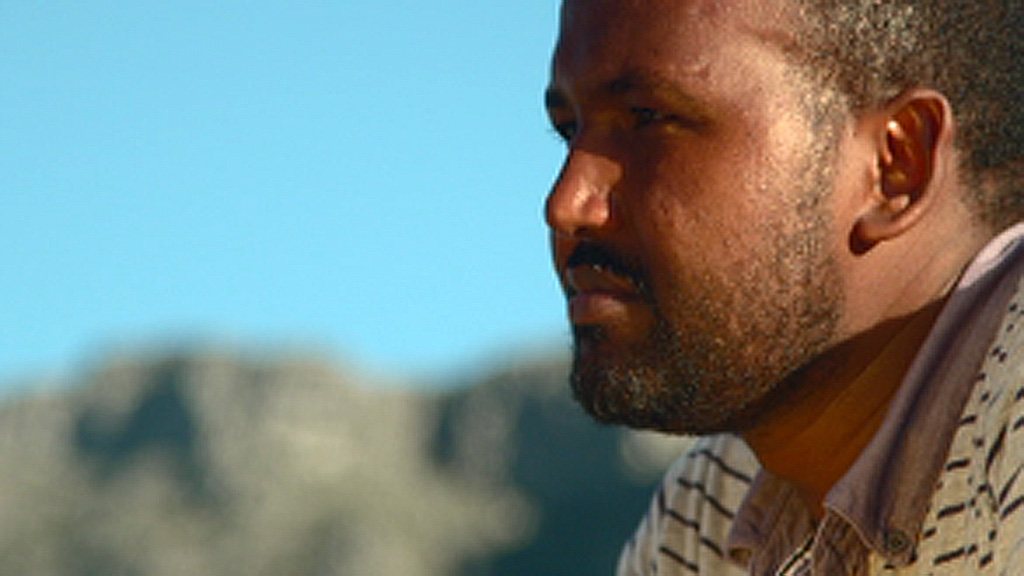On the refugee road: my story
 Jamal Osman
Africa Correspondent
Jamal Osman
Africa Correspondent
Every year, thousands flee their country to escape war, drought or poverty. In 1996 in Somalia, Africa Reporter Jamal Osman was one of them. Here, he retraces his steps and meets those trying it now.

It was in 1996. I was a teenager. At that point, the Somalia war had been raging for several years. Fleeing from one place to another and going back and forth was the norm. By then, I had been to most of the neighbouring countries.
But this time, my plan was to go as far as I could and away from the conflict. Destination: South Africa.
At a Kenyan border town, I boarded a bus to Nairobi. Most of the passengers were Somalis. So I was in some sort of a familiar zone – yet I was on my own. A few days prior to that, I had said goodbye to my family. They had to reluctantly accept my decision. It was made out of desperation, a necessity and a desire for a better life.
I was fleeing the Somalia war, which since then has taken many twists and turns and is still going on. It has caused death and destruction to millions of innocent people. I happened to be one of those affected by the conflict, one of many confused by what was going on.
I was fleeing the Somalia war, which since then has taken many twists and turns and is still going on. It has caused death and destruction to millions of innocent people. I happened to be one of those affected by the conflict, one of many confused by what was going on.
Read more: when will security services stop harassing our reporter?
I don’t know who to blame for our suffering: is it the late Siyad Barre regime? Is it the Somali clan system which has divided us? Is it the warlords who chased us from our homes? Is it the neighbouring countries like Ethiopia who funded and armed the clan militias that over threw the government and are still meddling in Somali politics? Is it the British, who colonised us and divided our families into different entities and countries? Is it the Americans, who, for whatever reason, seem to support anyone prepared to destabilise Somalia? I blame all of the above.
They destroyed my childhood and many others like me. To survive and support my family, I started working when I was about 12 years old. I never had a childhood. The situation forced me to flee when I did not want to leave. It forced me into foreign lands where I am not wanted. It turned me into a lifetime refugee, a stateless person.
My life has certainly improved since I came to Britain 15 years ago, but part of me is missing. Emigrating to faraway places is never a favourable choice. It is like choosing the best of bad options. Home will always remain home.
Homesickness and hope
My trip to South Africa was one of several journeys I made within Somalia and to neighbouring countries in a ten-year period before I ended up in London. Other countries I sought refuge in were undoubtedly safer than Somalia, but I never felt entirely comfortable living in a foreign land. There are aspects of life that you will not experience anywhere else. The deep relationship between a human and their home country is irreplaceable. It is the familiar scenery, the unpolluted air and the surrounding sound.
Living away from home, I would miss simple things like the tranquility of hearing the Adhan, the call to prayer. It might disrupt your sleep early in the morning but it gives a sense of calmness. I would miss the morning greetings: maxaad ku barideen? I would miss seeing familiar faces wherever I go: where everybody knows you and your family; where every adult is either your uncle or aunty; where every child is somehow related to you. No strangers. I would miss the evening’s simultaneous sound of dhac, dhac, dhac. Every evening Somali families prepare canjeero, pancake for tomorrow’s breakfast.
It took me about a decade to decide that there was no future in Somalia.
Each time I had to leave home, I would feel homesick and then go back to it, hoping the situation would improve. Even after surviving a massacre, I was not convinced to give up life in Somalia. In the early years, life in a foreign land was not a desirable option. It took me about a decade to decide that there was no future in Somalia.
Not many migrants decide overnight to just walk away from everything they have known since birth. No-one wants to face the uncertainty that lies ahead. No-one wants to risk life itself, in the hope of a better life. It takes a long time to come to that decision, and even when you decide, you don’t just board a flight to Europe or America.
To reach somewhere desirable, it takes years of trying, travelling thousands of miles and risking it all. That’s what I did.